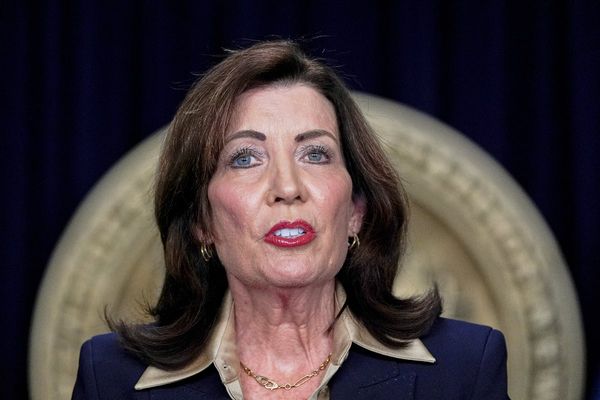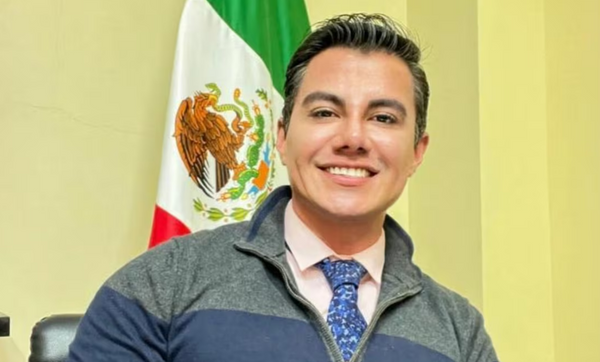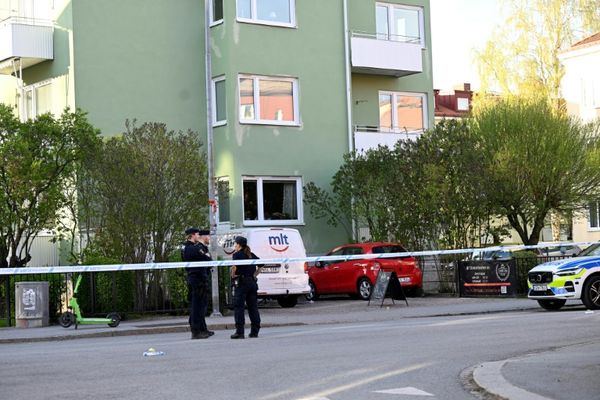
Human rights advocates have called on Anthony Albanese to place China’s human rights record ahead of economic and trade discussions in his meeting with China’s second most powerful leader on Monday.
They said it was time for Australia’s Labor government to demand concrete action from China in addressing human rights complaints against it as “statements of concern” were not achieving results.
The prime minister will hold the annual leaders dialogue with Premier Li Qiang in Canberra. Human rights campaigners and critics of Chinese policy have planned protests out the front of Parliament House during the visit.
Kyinzom Dhongdue of Amnesty International Australia said the time for statements of concern “about China’s egregious human rights violations in Xinjiang, Tibet, Hong Kong” had passed and “concrete action” was needed.
“It is time to seek concrete commitments for tangible improvements and clearly communicate intentions to seek accountability if these commitments are not met,” Dhongdue said.
Amnesty International wrote to the Australian government before Li’s visit pushing for the immediate and unconditional release of the Chinese-Australia academic and writer Dr Yang Hengjun, who in February received a suspended death sentence from a Chinese court, and the release of a Hong Kong-Australian, Gordon Ng, who was convicted under new security laws. Australian officials said they have been repeatedly blocked from having contact with Ng.
Yang’s supporters in Australia said he was a “political prisoner who has been sentenced to death because of his writings in support of individual freedoms, constitutional democracy and rule-of-law” and, after more than five years in a state security detention centre, they believed he was being moved to a permanent prison. They urged Albanese to use his meeting with Li to “directly demand that Yang be released on medical parole or otherwise be transferred to safety in Australia, in accordance with basic humanitarian principles”.
“Our most immediate concern is that Yang’s medical conditions remain serious and unaddressed. There is no transparency and we have no grounds for confidence that he is receiving adequate medical treatment,” his supporters said.
They added: “Clearly, it is not possible to achieve a stable, respectful bilateral relationship with China while their officials are threatening to execute an Australian political prisoner, without any semblance of due legal process.”
In an interview with the ABC on Sunday, Penny Wong said Australia continued to “advocate” where appropriate, including for medical care for Yang.
“We will continue to advocate for appropriate medical treatment,” said the foreign affairs minister, who has previously called Yang’s sentencing “appalling”.
“I’m not going to go through someone’s medical treatment on national television.”
Dhongdue said Amnesty was also urging Albanese and Wong to ensure that Uyghur Australians were reunited with their family members, calling their separation the “result of systematic Chinese state-organised mass imprisonment, torture and persecution of Uyghurs, amounting to crimes against humanity”, and to secure “unfettered access to Tibet”.
“Uyghur, Tibetan, Hong Konger, and Chinese human rights groups rightly fear that renewed trade and economic ties, a key agenda of this visit, will compel governments like Australia to overlook human rights issues,” Dhongdue said.
“This concern is rooted in the past thirty years of the Australia-China economic relationship, where economic interests have overshadowed human rights and worse still normalised China’s human rights abuses.
“We urge the Australian Government to prioritise upholding human rights and seeking accountability as part of renewing and repairing its relationship with China. Only then a genuine rapprochement with China can take place.”
The director of Australian Human Rights Watch, Daniela Gavshon, agreed and said there was an expectation Albanese would speak to Li about the Chinese Communist party’s “ongoing repression in Tibet, its crushing of democracy in Hong Kong, its crimes against humanity in Xinjiang, and its transnational repression.”
“More than talk, we expect the Australian government to identify the consequences it will put in place for these continued abuses,” Gavshon said.
“Dialogue with the Chinese government and expressions of concern by the Australian government for the CCP’s human rights violations certainly have their place. But it’s clearly not enough to actually create pressure for accountability and change. The Albanese government needs to put in place concrete measures that show consequences for Beijing’s violations.”
Gavshon said Australia had direct avenues to demand those concrete measures, including at the upcoming UN human rights council in Geneva, as well as “targeted sanctions directed at those responsible for human rights abuses”.
“The Albanese government’s consistent stated approach is to ‘co-operate with China where we can, disagree where we must and engage in our national interest’,” she said. “This has been code for suggesting human rights issues are simply a disagreement or ‘points of contention’.
“But they are not. Human rights are universal, a system of global rules and governance that promote and protect all of our fundamental rights and freedoms.”







